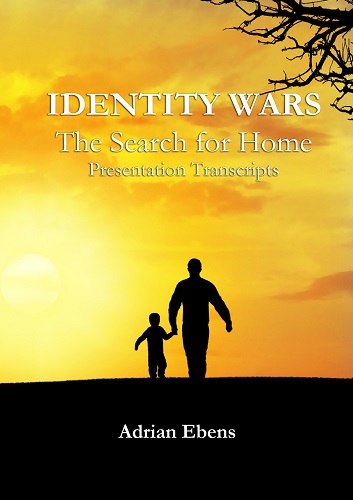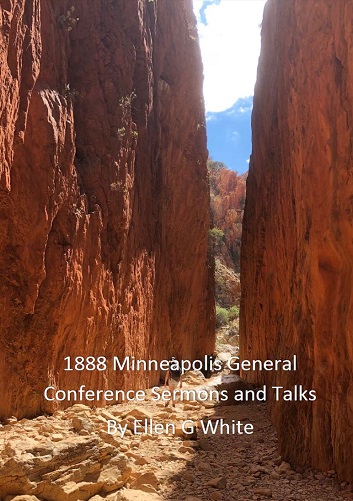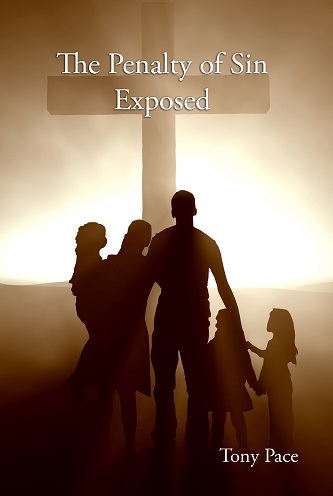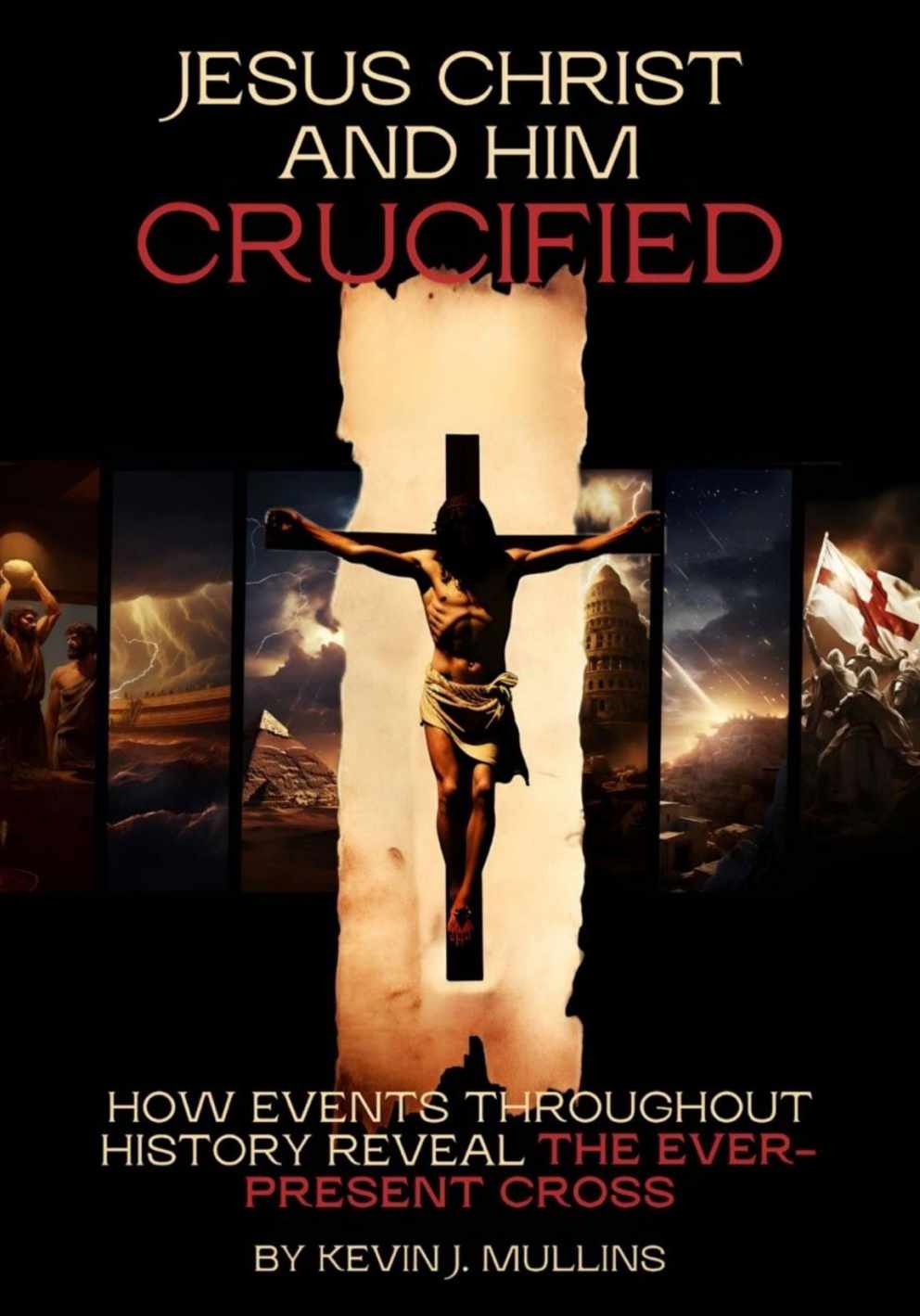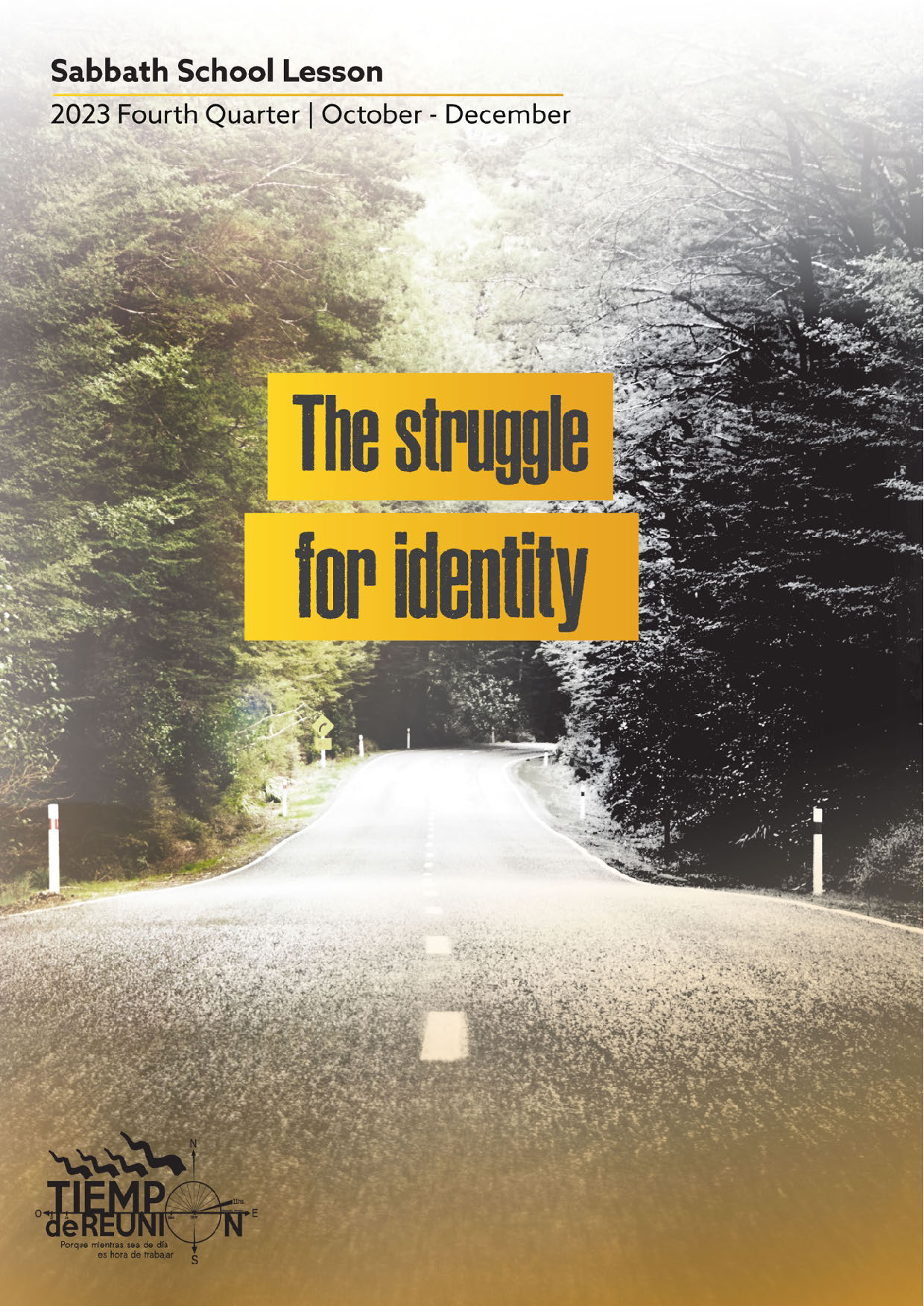What Is the Atonement? and What Does Psalm 22 Have to Say?
Psalm 22 is a transcript as if there were a stenographer present at Calvary who could take down more than any stenographer could take down. A stenographer can only take down the words that someone might speak audibly. But this stenographer took down the thoughts that Jesus had, his prayer.
The first words were spoken audibly—people heard them, and no doubt someone went to Mary and said, “Mary, I’m sorry to tell you this, but I heard your son express the thought that God had forsaken Him.”
Can you imagine how Mary thought, “that my son has come to this—that my son, that I thought was the Messiah has finally confessed that the whole thing was a monstrous fraud and he is nobody, that God has turned His back on Him.” No doubt that was a sword that was plunged through her heart.
Yes, the first verse was spoken audibly, “My God, why hast thou forsaken me? why art thou so far from helping me.” The Hebrew word here is a word that describes an animal that is caught in a trap and is crying in distress, "and from the words of my roaring?" He felt that God was far from Him. That is how we sinners feel.
Maybe you have felt that way? Maybe—I shouldn’t say that—I know you have because you are human. If you are a son or daughter of Adam, you are bound to have felt that way. The papacy’s idea is to put Christ as far away from us as possible. This alienation from God, this feeling that He is far away from us, that He really doesn’t care about me—that’s how Jesus felt.
Verse 2— “O my God, I cry in the daytime, but thou hearest not; and in the night season, and am not silent.”
Probably what happened was that as the sun was darkened, about noon, that this cry of dereliction came after it, in the darkness, that He thought that it was night. He didn’t have a watch, probably thought that the sun had set—the sun was gone, darkness, night. So, in that deep distress, he begins in verse three to build his bridge across this chasm that sin has caused.
It is dark as pitch in the darkest black of midnight that is possible. There is no one to help him, no one to offer a word of comfort of any kind. The Father is silent. Paul tells us that the Father was right there, “God was in Christ reconciling the world to himself.” [2 Corinthians 5:19]. The father suffered with the son but the Father could not communicate with him. The rules would not permit it. The son felt like he was billions of miles away. Look, and see what he does. This is magnificent if you can see this. This is the atonement.
Verse 3— “But thou art holy, O thou that inhabitest the praises of Israel.” God believes in democracy. He refuses to exercise his authority as King unless his people elect him. And so, the first thought that Jesus has is that God is enthroned. His throne is not an arbitrary thing that he has won by might and mane, but his throne is to be established upon the praises of his people.
Verse 4— “Our fathers trusted in thee: they trusted, and thou didst deliver them.” This is a complaint really—“they cried unto thee, and were delivered: they trusted in thee, and were not confounded.” “But” you won’t listen to me, “I am a worm, and no man.”
This worm theology bothers a lot of ministers. We have in the hymn book one of the loveliest hymns ever written, but they refuse to say it. It goes like this:
Alas and did my Saviour bleed?
And did my Sovereign die?
Would he devote that sacred head
For such a worm as I?
“I’m not a worm! I’m not going to sing that hymn! It’s a terrible hymn!” But I think it’s a beautiful hymn.
Was it for crimes that I have done,
He groaned upon the tree?
Amazing pity! Grace unknown!
And love beyond degree.Well might the sun in darkness hide
And shut his glories in,
When Christ the mighty maker died
For man the creatures sin.Thus might I hide my blushing face,
While His dear cross appears,
Dissolve my heart in thankfulness,
And melt mine eyes to tears
That is pure agape. Isaac Watts had the idea. Nothing about going to heaven. Nothing about wearing stars in my crown. Nothing like that. He concludes:
But drops of grief can ne’er repay,
This debt of love I owe;
Dear Lord I give myself to thee,
’Tis all that I can do.
And yet these dear brethren condemn that purest gospel hymn, because the poet dared to quote a word of Jesus Christ that they hate. And I say, if the Lord Jesus could say of himself as he hangs on the cross, “I am a worm!” Why can’t I sing that hymn?
The editors of some hymn books have even taken it out. The hymn is there praise the Lord, but they’ve taken out the word. You can check it for yourself.
“And I’m despised of the people,” he says.
Verse 7— “All they that see me laugh me to scorn”—that’s kind of hard to endure. Opposition is easy, scorn and ridicule is difficult. “They shoot out the lip, they shake the head”—if you want to have a thrill, get a good recording of Handel’s Messiah and listen to that long recitative of the tenor who sings these words, and just let it roll into your heart.
They say he’s a fool, he’s come to nothing “He trusted on the LORD that he would deliver him”—Ha ha! “let him deliver him, seeing he [supposedly] delighted in him.” Here are the religious leaders of the nation ridiculing the son of God in his agonies. It hurt. It’s pretty bad! How can Jesus handle this? He’s not worried about his own salvation, he’s concerned about his mission. Is he going to fail? Is the kingdom going to be lost? It is hanging in the balance. This is a critical hour. If the son of God dies, if his last breath, if his last utterance is one of dereliction, “My God, you’ve failed me! I have failed!”—if he dies at that time the plan of salvation has failed. Somehow, he’s got to die in triumph. How is he going to do that?
He starts here with verse 9 recalling his past history, which is a good thing to do. “But thou art he that took me out of the womb: thou didst make me hope when I was upon my mother’s breasts. I was cast upon thee from the womb: thou art my God from my mother’s belly.” What does he mean by that?
You know that he was born in the stable with the chickens, and cows, and goats. It wasn’t December 25, and Mary didn’t have all her garments pressed and laundered at the nearest Laundromat as the pictures show her. She had just ridden, or walked, 80 miles when she was great with child. She should have stayed home in Nazareth. Joseph had to go to Bethlehem and she said, “I don’t want to stay here alone, the people are laughing at me, I want to go with you.” What woman who is on the verge of delivering walks or rides on a donkey 80 miles. How can you endure that?
The way Luke tells the story, the baby came suddenly. She wasn’t prepared. She had no layette. There she was in a stable, flies everywhere, filthy surroundings, no antiseptic preparation at all. She told him as he grew up what had happened, and he remembers that and says, “Father, when I was born, I was about to die, but you saved me then.”
Now, verse 11— “be not far from me for trouble is near; for there is none to help." Shame on them. Even Peter, James, and John didn’t give him a drink of water. Not one of them came up and took his wounded feet in his hands and said, “Lord, we still love you, we still believe you’re the Messiah.” Not one.
You know, we shouldn’t be proud of ourselves should we. Those were absolutely the best men in the world. Not one helped him.
Verse 12— “Many bulls have compassed me: strong bulls of Bashan have beset me round." If you have ever been chased by an angry bull you will appreciate this.
Verse 13— “They gaped upon me with their mouths, as a ravening and a roaring lion.” Note the lion. It is circling around the cross there. A little later on, Christ feels that the lion has him in its mouth.
Verse 14, 15— He suffered here what we may call the equivalent of a nervous breakdown, or, to put this in modern English, he came unglued. “I am poured out like water, and all my bones are out of joint: my heart is like wax; it is melted in the midst of my bowels. My strength is dried up like a potsherd; and my tongue cleaveth to my jaws; and thou hast brought me into the dust of death,” the second death. The first death is not the second death. The first death is merciful. The first death is a sleep.
Since the world began, how many people have died? The true answer is one. Everyone else has gone to sleep. Christ is the only man who has ever died true death—yes, the equivalent of the second death. He was brought into the dust of that death.
I hope I never have to explain what the second death is. The horrible sense of complete, total, self-condemnation, where every cell of your being is on fire with this awful accusation that you are worthless. You’re no good, you have failed, you are nothing, you are going to be thrown out into the darkness forever with the doors of heaven slammed against you. That’s how he felt.
Verse 16— “For dogs have compassed me,” not your pretty little poodles, or whatever, but these wild, filthy dogs. “The assembly of the wicked have enclosed me: they pierced my hands and my feet." The Septuagint [LXX] says “they pierced my hands and my feet.” Some of the modern translations have not used that translation there but the KJV translators felt that because of what the NT says that the LXX was correct.
Verse 17— “I may tell (count) all my bones: they look and stare upon me.” He was strung up naked. Nobody has ever painted the crucifixion correctly.
Verse 18— “They part my garments among them, and cast lots upon my vesture.”
Verse 19— A prayer—“Please, O my strength, do something to help me” Please deliver my soul from this sword. My soul, my mission—the real me. A human being isn’t so concerned for his physical integrity as he is for the integrity of his soul, his life work, his ministry, his personality, whoever he is.
And then the next expression in the Hebrew is interesting, “my only one from the power of this dog.” That must mean the thing that is dearest to a man or a woman. This indescribable something that represents the sum of all our hopes and aspirations. Our personal integrity—more than that—in Jesus’ case, it meant his mission. The dearest thing to him, the vindication of his father to save a world that is lost in sin, to establish the government of God. If Jesus fails, Gods government must fail. God has risked everything He has in Christ.
I can’t imagine what would have happened if Jesus had failed. I can’t imagine that God would have shut himself up in his heaven in failure and disgrace while Satan shouts and rolls his triumph all through the universe.
Satan could perhaps have involved the whole universe in rebellion and cast contempt upon God. “Look," he could have said, “God sent his own son to the planet earth which was my possession, and this son of God failed. This thing that I have invented is greater and stronger than God himself. I have invented this magnificent thing called ‘sin’ and I have vanquished the son of God. Thus I have vanquished the Father. Unfair Father, get off of that throne! I belong there!” That’s what would have happened.
And Jesus knows this. He doesn’t want this to happen.
Verse 21— Now the lion has him in his mouth. “Save me from the lions mouth," and in this horrible darkness, he breaks through the cloud. In the middle of verse 21 he has built his bridge, by faith. “You have heard me while I was tossed on the horns of this wild buffalo.”
We have had missionaries in Africa who have been gored by the wild buffalo. It is a horrible thing. They are mean animals. Just imagine yourself caught in a herd of these angry wild buffalo, and they are just tossing you like you would toss a ball up in the air. And that is how he felt in his last extremity.
Then he says, “You have heard me.” By faith, he triumphs. And so, the rest of it is a hymn of praise. Here is where you and I come in.
I don’t know what happened. His heart was probably already ruptured, and in his last moments as the shadows begin to gather, he’s happy. The last thing—he has made it. “I will declare thy name unto my brethren: in the midst of the congregation will I praise thee. Ye that fear the Lord.” Don’t get discouraged, praise him. “All ye the seed of Jacob, glorify him; all ye the seed of Israel,” because he is good. “For he hath not despised nor abhorred the affliction of the afflicted; neither hath he hid his face from him; but when he cried unto him, he heard.” When I cried “My God, why hast thou forsaken me!— he heard me! And he answered me!” He’ll answer you too.
Verse 25— “My praise shall be of thee in the great congregation: I will pay my vows before them that fear him. The meek shall eat and be satisfied: they shall praise the Lord that seek him: your heart shall live for ever. All the ends of the world shall remember and turn unto the Lord: and all the kindreds of the nations shall worship before thee. For the kingdom is the Lord’s: and he is the governor among the nations.”
Verse 30— “A seed [a generation] shall serve him, it shall be accounted to the Lord for a generation.” You may wonder what this generation means. We have argued about that for a hundred and some years. Maybe we have a key right here to understand it. When the Lord has a remnant who appreciate what happened on that cross, it shall be accounted to him for a generation.
Verse 31— “They shall come, and shall declare his righteousness unto a people that shall be born." Then you have one word left there in the Hebrew. The KJV messed it up. I suppose most of the translations mess it up. That word, ’asah in the Hebrew—the only way to translate it is to say “It is finished!”, and he died. That is the atonement. That’s the reconciliation. The bridge has been built. You can cross it by faith.
And so Paul says in Romans chapter 5— it’s not something that only the theologians can understand—it’s really very simple, in verse 8, “God commendeth his agape toward us, in that while we were yet sinners, Christ died for us. Much more then, being now justified by his blood, we shall be saved from wrath through him.”
Please be careful, because the modern translations are doing something that John says we must never do. They are putting words in God’s mouth that he never said. For example, Today’s English Version takes every chance it can to louse up what the apostle said, and they insert here “we should be saved from God’s wrath through him.” Paul didn’t say God’s wrath. The KJV is right. We shall be saved from our own wrath. That’s the second death, this sense of utter self-condemnation—that’s what is going to kill the wicked at last. Not that God kills them. The wages of sin is death, the second death. It is sin that goes in to us and brings up utter self-condemnation. It is that horrible last look at ourselves that kills us. Paul says we should be saved from that because Jesus experienced that on the cross and took the sting out of it.
Verse 11— “And not only so, but we also joy in God through our Lord Jesus Christ, by whom we have now received the atonement.” We now have been reconciled to God through the cross.
If you want to win some souls, you don’t have to go to some University to learn how to skip all through your Bible reading a verse here or a phrase there to show people how bright you are, and how much you know about the Bible. Just take one little chapter and go verse by verse.

